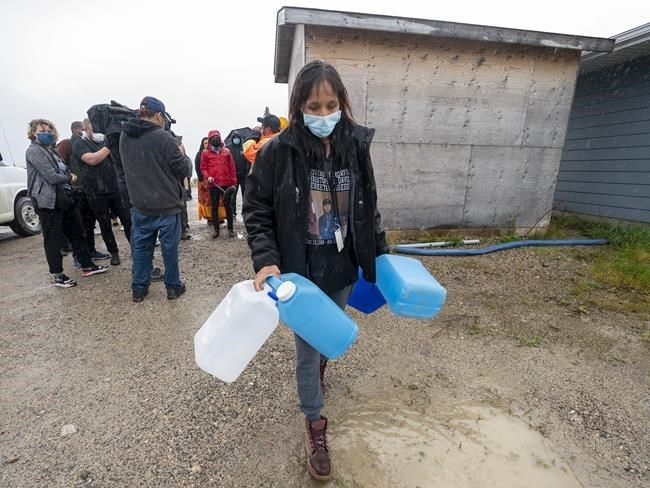OTTAWA — The parliamentary budget officer has put a price tag on providing clean drinking water in First Nations, saying in a new report that the federal government still has a shortfall to make up.
Yves Giroux’s report on Wednesday said the government has set aside more than enough money to meet the expected capital costs to build water and wastewater systems over the next five years.
Where the government falls short is on financial help to First Nations to operate the systems, which Giroux's office estimates would need $138 million more annually in federal funding.
Indigenous Services Minister Patty Hajdu said the government intends to close that gap and is working with First Nations to understand what is standing in the way after the Liberals promised to fund all operating costs.
The budget officer's report warns that not spending enough, and not spending it on time, could increase the bill to provide water and wastewater services on reserves comparable to non-First Nations communities of the same size.
The report said "a low investment rate or a significant delay in the investment completion" could mean systems deteriorate faster than expected, "costing more money and risking service disruption."
The Liberals had promised in their successful 2015 election campaign to end all boil-water advisories in First Nations within five years of taking office, a timeline that was supposed to be met this year.
But the government last year said the target wouldn't be met, pointing to the pandemic among a variety of other factors in its way.
Hajdu didn't set a new deadline when asked on Wednesday.
"We'll be working with First Nations communities to understand how we can make sure that we expedite the work and give them the tools that they need to move forward in this planning," she said outside the House of Commons.
"This isn't something the government unilaterally can impose on a community. This is something that we do together with communities."
The latest federal figures show that 119 long-term drinking water advisories have been lifted since November 2015, with 43 remaining in 31 communities with federally supported systems.
The government says many of those remaining should be lifted over the next 12 months based on plans in place for each community. Hajdu's office said some project scopes have changed or construction schedules have been complicated by pandemic measures that shifted timelines.
"We have to be truthful with our timelines to Canadians who are looking for answers," said Crown-Indigenous Relations Minister Marc Miller. "But behind all that is the resolve of this government to continue investing in essential water and essential assets in communities."
He also said homegrown solutions to train local Indigenous people to run water plants and working with First Nations on plans are as important as funding.
The PBO report also noted that the share of water systems deemed to be "high" or "medium" risk — meaning they are unlikely to manage through any problems — has remained virtually the same since 2015 despite annual federal spending more than doubling during that time.
The government says it takes time to improve systems, years in some cases to plan, design and build them, so changes to levels of risk may be more gradual than dramatic.
Jamie Schmale, the Conservative critic on the file, said the government should look at all solutions and alternative ideas to end long-term drinking water advisories, although his statement didn't provide any specifics.
"Success isn't measured by funding announcements and election promises, it's measured by outcomes," Schmale said.
NDP critic Lori Idlout said that without adequate operations and maintenance funding, communities will lose access to clean drinking water when the infrastructure fails and pointed to firsthand experience.
"In my riding of Nunavut, the city of Iqaluit has been without clean drinking water for seven weeks. If this were happening in a city like Vancouver or Toronto the problem would have been fixed immediately," she said in a statement.
"The Liberals must do better."
This report by The Canadian Press was first published Dec. 1, 2021.
— With files from Erika Ibrahim
Jordan Press and Stephanie Taylor, The Canadian Press



